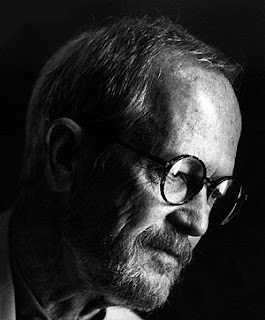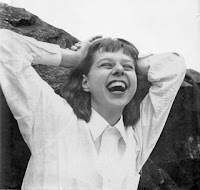 |
| Jack Kerouac |
 |
| Truman Capote |
Writing as contact sport.
"That's not writing,
that's typing."—Truman Capote to Jack Kerouac
"The world is rid of
him, but the deadly slime of his touch remains."—John Constable about the death
of Lord Byron
"Every word she writes is a lie, including 'and' and 'the.'"—Mary McCarthy about Lillian Hellman
"If he really meant what he writes, he would not write
at all."
—Gore Vidal about Henry Miller
"I am fairly
unrepentant about her poetry. I really think that three quarters of it is
gibberish. However, I must crush down these thoughts, otherwise the dove of
peace will shit on me."—Noel Coward about Dame Edith
Sitwell
"He had a mind so
fine that no idea could violate it."—T. S. Eliot about Henry James
"She was a master at
making nothing happen very slowly."—Clifton Fadiman about Gertrude
Stein
"The stupid person's idea of the clever person."—Elizabeth Bowen about Aldous Huxley
"To those she did not like she was a stiletto made of sugar."—John Mason Brown about Dorothy Parker
"To me Pound remains
the exquisite showman without the show."—Ben Hecht about Ezra Pound
"His verse is the
beads without the string."—Gerard Manley
Hopkins about Robert
Browning
"He is mad, bad and
dangerous to know."—Lady Caroline Lamb about Lord Byron
"Nothing but old fags
and cabbage-stumps of quotations from the Bible and the rest, stewed in the
juice of deliberate, journalistic dirty-mindedness."—D. H. Lawrence about James Joyce
"He writes his plays
for the ages - the ages between five and twelve."—George Nathan about George
Bernard Shaw
"Virginia Woolf's
writing is no more than glamorous knitting. I believe she must have a pattern somewhere."—Dame Edith Sitwell about Virginia
Woolf
"A great zircon in
the diadem of American literature."—Gore Vidal about Truman
Capote
"The only genius with
an IQ of 60."—Gore Vidal about Andy Warhol
"He is able to turn
an unplotted, unworkable manuscript into an unplotted and unworkable manuscript
with a lot of sex."—Tom Volpe about Harold
Robbins

.jpg)





















